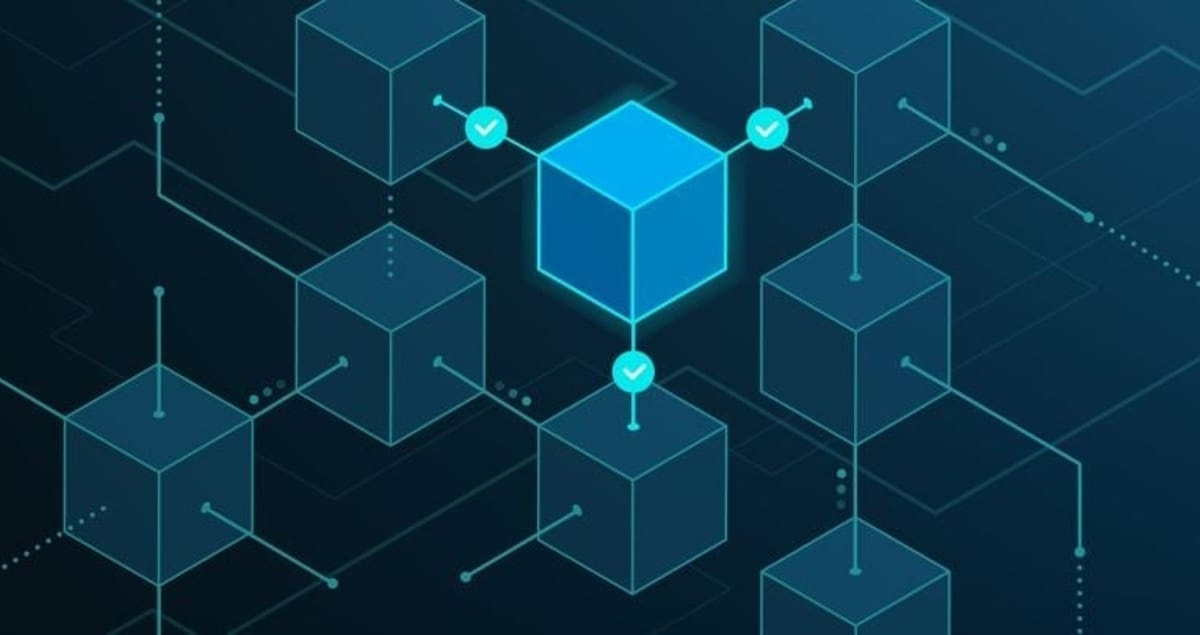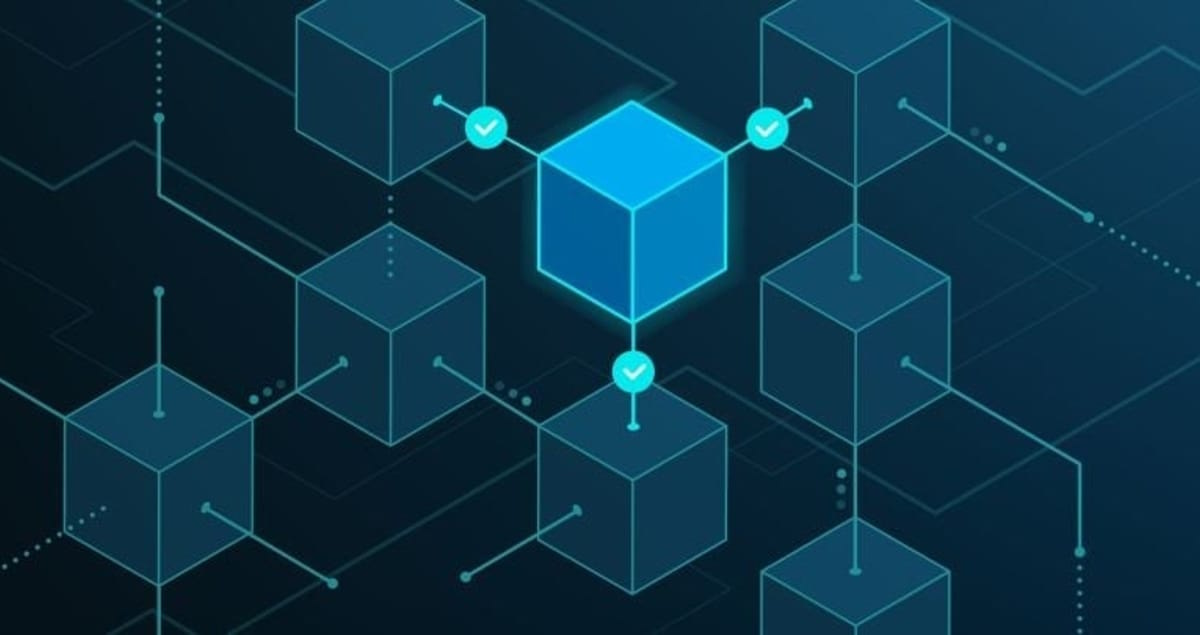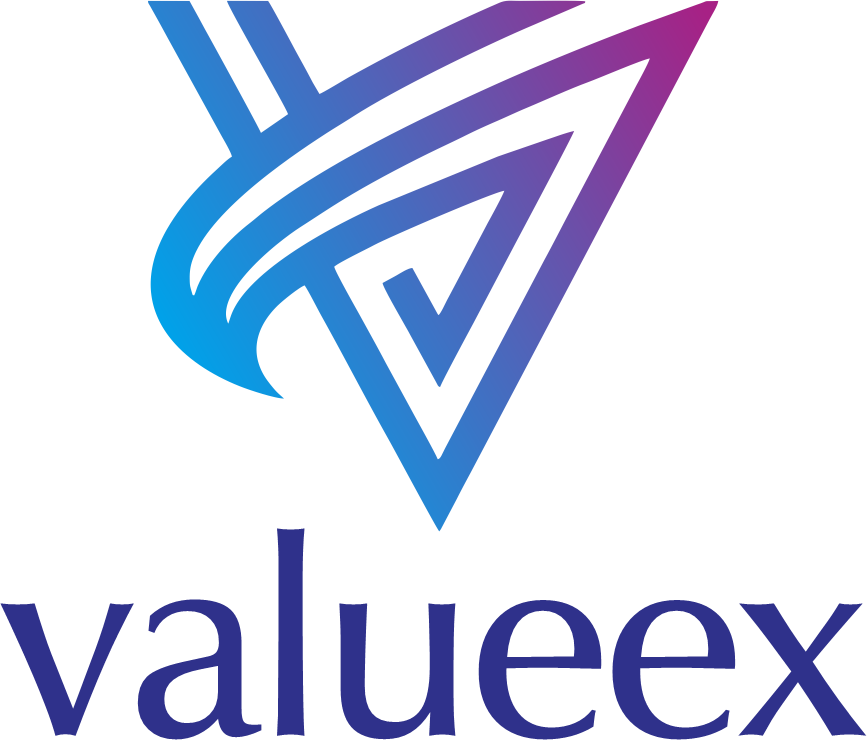Blockchain
WAX Solving Voter Apathy Problem Plaguing DPoS-Based Blockchains by Incentivizing Voting

 Reading Time: 3 minutes
Reading Time: 3 minutes
Worldwide Asset eXchange (WAX), the world’s first protocol blockchain purpose-built for e-commerce, today announced its WAX Block Rewards and Genesis Block Member programs. These programs reward WAX Token holders daily with additional tokens by incentivizing them to:
- Vote on block producers (called WAX Guilds) and blockchain improvement proposals. These rewards are called Staking Baseline Rewards.
- Remain long-term participants of the WAX ecosystem. These rewards are called Genesis Block Member rewards.
For blockchains that use Delegated Proof of Stake (DPoS) as its consensus mechanism like WAX, voting is crucial for healthy development. Token holders are incentivized by self-interest to vote in the protocol’s best interest. For example, if token holders were to vote in favor of a proposal that positively affects the protocol it would enhance usability and overall usage. Self-interest will drive the best decisions. The WAX team understood the dire need to incentivize voting after seeing how detrimental voter apathy has been to other DPoS blockchains.
By voting regularly, WAX Token holders contribute to the selection of quality guilds and proposals – supporting the overall health of the WAX Blockchain. WAX is ushering in a new era of blockchain communities that are active and engaged in a chain’s development because they are incentivized with rewards in the form of more tokens, called Staking Baseline Rewards.
Additionally, WAX is incentivizing WAX Token holders to become long-term-oriented community members who take part in the WAX blockchain’s healthy development by offering Genesis Block Member rewards which provide a way to double their token holdings over three years.
Earning more WAX Tokens through rewards:
When the WAX Blockchain mainnet and protocol token are released on June 30, 2019, WAX Token holders will have three ways to earn more WAX Tokens:
Staking Baseline Rewards: WAX Token holders can earn additional WAX Tokens every day with Staking Baseline Rewards, simply by voting for WAX Guild candidates. A set number of WAX Tokens will be allocated each day for Staking Baseline Rewards. The number of tokens that each individual WAX Token holder receives daily depends on their stake weight, relative to other stakers. For example, if a voter’s stake weight amounts to 0.5% of the aggregate stake weight on any given day, the holder will receive 0.5% of the daily Staking Baseline Rewards amount. More information on Staking Baseline Rewards can be found here.
Genesis Block Member (GBM) rewards: Participants of the GBM program will receive daily token rewards for three years, up to double their starting amount. For eligibility, members must participate in the WAX Token Swap that begins on June 30, 2019, where they will receive Genesis WAX Protocol Tokens. Genesis WAX Protocol Tokens will continue to produce GBM rewards every day as long as they remain staked and by leaving them uninterruptedly staked for three years, holders can double their token amount. More information on the GBM program can be found here.
WAX Guild Rewards: The WAX Blockchain is designed with 21 WAX Guilds who earn rewards for producing blocks. These WAX Guild Rewards are granted based on the number of blocks produced by each WAX Guild. 36 standby guilds can also earn a share of WAX Guild Rewards.
“The WAX protocol uses a delegated proof of stake mechanism to validate transactions rapidly and cheaply,” said William Quigley, CEO of WAX. “DPoS is well-suited for high volume industries like e-commerce and virtual item trading, where fast processing time is expected. But DPoS does have a drawback. It depends on a continuous process of voting. Voter apathy is the kryptonite of DPoS. So we’ve designed WAX with multiple incentives to boost voter participation.”
Even more ways to earn WAX Tokens are coming in the future including additional types of WAX Block Rewards, becoming a dApp developer, becoming a Transfer Agent, and the WAX Marketplace program.
WAX Token holders can convert their ERC-20 WAX Tokens to Genesis WAX Protocol Tokens from June 30, 2019 to August 30, 2019. More information about the token swap can be found here.
Blockchain
Blocks & Headlines: Today in Blockchain – May 6, 2025 | Arkham, DMG Blockchain, Solana, Prologis

The Blockchain Renaissance – AI, Infrastructure, and Eastern Europe’s Ascent
As we navigate through the intricate tapestry of blockchain and cryptocurrency, May 6, 2025, stands out as a day marked by significant strides in technology, infrastructure, and regional innovation. From the fusion of artificial intelligence with blockchain analytics to the strategic expansion of data centers, the landscape is evolving at an unprecedented pace. Eastern Europe, particularly Romania, is emerging as a formidable player in the blockchain arena, leveraging platforms like Solana to drive innovation. Simultaneously, the integration of blockchain into warehouse operations signifies the technology’s permeation into traditional industries.
Arkham and Blockchair: Redefining On-Chain Transparency
In the realm of blockchain analytics, Arkham Intelligence and Blockchair are pioneering a new era of on-chain visibility. Arkham Intelligence, founded by Miguel Morel and backed by notable investors such as Sam Altman and Tim Draper, utilizes AI to deanonymize blockchain addresses, providing a clearer view of cryptocurrency flows. This approach, while enhancing transparency, raises questions about privacy and the balance between openness and confidentiality in the decentralized world.
Blockchair complements this by offering a comprehensive blockchain search and analytics engine, enabling users to explore transactions across multiple blockchains. Their tools facilitate a deeper understanding of blockchain data, empowering users to make informed decisions.
Source: Bitcoin News
DMG Blockchain Solutions: Strategic Pivot Towards AI Infrastructure
DMG Blockchain Solutions Inc. has reported its preliminary operational results for April 2025, highlighting a strategic shift towards artificial intelligence infrastructure. The company mined 30 BTC during the month, a slight decrease from March, attributed to increased network difficulty and a shorter month. Notably, DMG increased its realized hashrate to 1.93 EH/s, supported by the deployment of additional Bitmain S21+ Hydro miners.
In a significant move, DMG liquidated a portion of its Bitcoin holdings to fund the acquisition of 2 megawatts of prefabricated AI data center infrastructure. This investment marks a demonstrative shift towards utilizing returns from Bitcoin mining to fund AI capital expenditures, aiming to secure off-take agreements with high-value government and enterprise users seeking sovereign AI solutions in Canada.
Source: GlobeNewswire
Prologis: Integrating Blockchain into Warehouse Operations
Prologis, a global leader in logistics real estate, is exploring the integration of blockchain technology into warehouse operations. By leveraging blockchain’s immutable ledger, Prologis aims to enhance inventory management, transportation tracking, and logistics. The technology allows for a permanent record of every transaction, accessible to all network participants, thereby improving transparency and efficiency across the supply chain.
This integration enables manufacturers to better manage product origins, traceability, potential recalls, and perishable goods. With real-time visibility into consumer-level demand, manufacturers can forecast demand accurately, optimizing revenue and profitability while reducing the risk of lost sales.
Source: Prologis
Romania’s Embrace of Solana: Accelerating Blockchain Innovation in Eastern Europe
Romania is positioning itself as a hub for blockchain innovation in Eastern Europe, with a particular focus on the Solana blockchain. The country’s tech-savvy population and supportive regulatory environment have attracted developers and entrepreneurs to build decentralized applications (dApps) on Solana’s high-performance platform.
This strategic embrace of blockchain technology is fostering economic growth and technological advancement in the region. By leveraging Solana’s scalability and low transaction costs, Romanian startups are developing solutions in finance, supply chain, and digital identity, contributing to the broader Web3 ecosystem.
Source: Romania Insider
Blockchain’s Role in Shaping Web3: Insights from NASSCOM
The National Association of Software and Service Companies (NASSCOM) has highlighted the pivotal role of blockchain technology in the evolution of Web3. Blockchain’s decentralized and immutable nature provides the foundation for a more secure and user-centric internet, enabling peer-to-peer interactions without intermediaries.
By facilitating trustless transactions and data ownership, blockchain empowers users to control their digital identities and assets. This paradigm shift is driving the development of decentralized applications, decentralized finance (DeFi), and non-fungible tokens (NFTs), reshaping the digital landscape towards a more equitable and transparent ecosystem.
Source: NASSCOM
Conclusion: Navigating the Blockchain Frontier
The developments on May 6, 2025, underscore the dynamic nature of the blockchain and cryptocurrency landscape. From enhancing transparency through AI-powered analytics to integrating blockchain into traditional industries and fostering regional innovation, the technology continues to evolve and permeate various sectors. As we move forward, the convergence of blockchain with emerging technologies like AI and the proactive adoption by nations like Romania signal a promising trajectory towards a decentralized and inclusive digital future.
The post Blocks & Headlines: Today in Blockchain – May 6, 2025 | Arkham, DMG Blockchain, Solana, Prologis appeared first on News, Events, Advertising Options.
Blockchain
Blocks & Headlines: Today in Blockchain – May 5, 2025 – Arkham, Blockchair, Worldcoin, Maldives

In an ecosystem defined by perpetual innovation and high-stakes regulatory scrutiny, the blockchain and cryptocurrency industry never pauses. Today’s briefing—“Blocks & Headlines: Today in Blockchain – May 5, 2025 – Arkham, Blockchair, Worldcoin, Maldives”—dives into five compelling stories shaping the narrative: a transformative $9 billion blockchain hub in the Maldives; Sam Altman’s Worldcoin orbs arriving stateside; AI‑enhanced onchain visibility via Arkham and Blockchair; the Blockchain Association’s plea for flexible SEC oversight; and Telegram’s blockchain‑inspired encryption for massive group calls.
Together, these developments spotlight five interlocking themes: diversification of traditionally tourism‑dependent economies, identity and trust models in Web3, the fusion of AI with onchain data, the evolving policy landscape, and privacy‑centric encryption. Across these stories, recurring SEO keywords—blockchain, cryptocurrency, Web3, DeFi, NFTs, tokenization, decentralized identity, onchain analytics, regulation, and privacy—underscore the connective tissue binding today’s headlines.
1. $9 Billion Blockchain Hub on Track to Transform Maldives
Source: U.Today
The Maldives, an archipelagic nation whose economy is heavily tethered to tourism (approximately 30 % of GDP) and fishing (around 10 %), is confronting mounting fiscal challenges: public debt has breached national GDP levels (circa $7 billion), and deficits threaten sovereign stability. In a strategic pivot, Maldivian authorities signed a joint venture with MBS Global Investments—a $14 billion UAE family office—earmarking an $8.8 billion investment in a cutting‑edge blockchain hub. This initiative aims to catalyze a 200 % GDP surge within four years, spawning thousands of jobs and potentially averting sovereign default.
On the surface, relocating blockchain infrastructure to paradise may seem incongruous. Yet by repurposing the country’s geographically dispersed islands into a decentralized Web3 nexus, the Maldives could host data centers powered by renewable oceanic energy, attract DeFi startups, and incubate NFT marketplaces catering to affluent tourists. This diversification blueprint underscores a broader trend: small economies leveraging blockchain to transcend traditional growth constraints. However, critical questions loom—regulatory clarity, environmental footprint, and cybersecurity resilience will determine whether this hub becomes a scalable model or a stranded asset.
Implication: If executed judiciously, the Maldives’ blockchain hub could set a precedent for emerging economies seeking to harness decentralized infrastructure. But success hinges on transparent governance, sustainable energy sourcing, and robust legal frameworks.
2. Altman’s Eyeball‑Scanning Worldcoin Orbs Land in the U.S.
Source: The Register
On May 1, six Worldcoin “Orb” retail locations opened across the United States—Austin, Atlanta, Los Angeles, Miami, Nashville, and San Francisco—offering biometric iris scans in exchange for WLD crypto tokens. Co‑founded by Sam Altman (OpenAI CEO), Alex Blania, and Max Novendstern, Tools for Humanity champions World ID, a blockchain‑based proof‑of‑personhood system designed to authenticate humans versus bots or AI‑generated avatars. Users who scan their irises receive roughly $16 in WLD, enabling them to later verify identity on participating platforms.
While touted as a breakthrough in decentralized identity, the initiative has incited privacy regulators worldwide: South Korea fined the project over $800,000, Hong Kong prohibited operations, and legal probes are active in Germany, Kenya, and Spain. Yet Worldcoin maintains that biometric data is encrypted on-device and purged post‑scan, and with 26 million users globally (12 million scanned), the network seeks to deploy 7,500 Orbs in the U.S. by year’s end.
Opinion: Worldcoin’s retail push exemplifies the friction between innovative identity solutions and privacy norms. The on‑chain distribution of WLD tokens may democratize crypto access, but it also risks normalizing biometric collection without exhaustive regulatory guardrails. The debate between security and civil liberties intensifies as Web3 projects blur lines between voluntary onboarding and pervasive surveillance.
3. AI and Blockchain Explorers ‘Arkham’ & ‘Blockchair’ Reshape Onchain Visibility
Source: Bitcoin News
Blockchain explorers have evolved from static transaction trackers to dynamic investigative platforms, especially with generative AI integration. Two frontrunners—Arkham Intelligence and Blockchair—are pioneering tools to render cryptographic ledgers comprehensible. Arkham’s AI correlates onchain flows with off‑chain entities, enabling analysts to dissect a Binance transaction involving 0.3065 BNB routed through WBNB and Pancakeswap in seconds. Blockchair’s AI assistant, Cuborg, fields natural‑language queries (e.g., “Which Bitcoin address dormant since 2017 just moved funds at block 895,197?”), surfacing actionable intelligence with remarkable speed.
The convergence of machine learning and onchain analytics promises unprecedented transparency for DeFi protocols, NFT markets, and compliance teams. Yet this visibility shift also rekindles the age‑old privacy dilemma: as attribution sharpens, users may flee to privacy coins (e.g., Monero, Zcash) or sophisticated mixers, fracturing onchain provenance. Thus, the community must strike a balance—leveraging AI for due diligence without undermining pseudonymity, a bedrock of decentralization.
Takeaway: Enhanced onchain visibility emboldens regulators and institutional custodians to adopt crypto, but it simultaneously pressures privacy advocates to innovate. The trajectory of DeFi scalability and AML compliance will pivot on how explorers calibrate the transparency‑privacy spectrum.
4. Blockchain Association Urges SEC to Adopt Flexible Crypto Regulation
Source: The Block Binance
On May 2, the Blockchain Association—representing heavyweights such as Coinbase, Ripple, and Uniswap Labs—submitted formal comments urging the U.S. Securities and Exchange Commission (SEC) to embrace an “incremental, flexible approach” under new Chair Paul S. Atkins. The association argued that equity‑style rule frameworks ill‑fit blockchain’s decentralized architecture, and that overly restrictive policies risk ceding global leadership in Web3 innovation. Key recommendations included:
-
Modernizing “best execution” by prioritizing diligence over prescriptive equity norms.
-
Leveraging public exchange APIs for oversight, eschewing bulk personal data collection.
-
Convening public‑private roundtables to iteratively refine tokenization guidelines.
As the SEC grapples with litigation against major crypto firms, the association’s plea underscores a broader policy shift—from adversarial enforcement to collaborative rulemaking. If embraced, this could catalyze a regulatory renaissance, aligning U.S. competitiveness with nascent markets such as the EU’s MiCA and Singapore’s digital asset frameworks.
Analysis: A flexible U.S. regime could anchor global capital flows in American markets. However, in the near term, ambiguity may persist, prompting projects to seek out friendlier jurisdictions. The evolution of DeFi, tokenized securities, and NFT financialization hinges on whether the SEC transitions from litigation‑driven oversight to principles‑based governance.
5. Telegram’s Blockchain‑Inspired Encryption Empowers Massive Group Calls
Source: CCN.com
Messaging titan Telegram has rolled out a major security upgrade: blockchain‑inspired encryption for voice and video group calls, scaling to tens of thousands of participants. Published May 5, 2025, the update employs a distributed architecture reminiscent of blockchain’s consensus model, paired with end‑to‑end encryption and a novel four‑emoji verification system. Users can join calls via links, QR codes, or invites, accommodating up to 200 guests in peer‑to‑peer calls and vastly more in server‑mediated group sessions.
This enhancement cements Telegram’s Web3 orientation—from in‑app NFT galleries to integrated crypto wallets and June’s Grok AI chatbot. By emphasizing decentralized encryption, Telegram seeks to differentiate itself from legacy platforms and curry favor with privacy‑minded Web3 users. The $100,000 unclaimed bounty for encryption breaches further testifies to the platform’s confidence.
Perspective: As social channels become conduits for DAO assemblies, token launches, and remote governance, Telegram’s upgrade anticipates Web3 ’s communal demands. Secure, large‑scale calls could host multichain hackathons, decentralized grant panels, and NFT minting drop parties—ushering in an era where encrypted communications seamlessly integrate with onchain action.
Conclusion: Charting Tomorrow’s Web3 Horizon
Today’s headlines—from island‑wide blockchain sanctuaries to AI‑powered explorers, from biometric orbs to regulatory overtures and encrypted megacalls—illustrate the multifaceted momentum driving blockchain and crypto into mainstream orbit. Key takeaways include:
-
Economic Diversification via Blockchain: Smaller nations can pivot from tourism to tech‑led growth, provided they embed sustainability and legal clarity.
-
Identity & Privacy Trade‑Offs: Worldcoin’s iris scans provoke essential dialogue on biometric ethics versus Sybil‑resistance in decentralized networks.
-
AI‑Driven Transparency: Arkham and Blockchair spotlight the accelerating fusion of AI and onchain analytics, demanding new privacy paradigms.
-
Adaptive Regulation: The Blockchain Association’s SEC proposal signals burgeoning alignment between policymakers and innovators—critical for U.S. leadership.
-
Web3‑First Infrastructure: Telegram’s encryption upgrade underscores the imperative for platforms to bake decentralized security into every layer.
As the industry hurtles forward, stakeholders must navigate these cross‑currents with pragmatic vision—embracing decentralization, protecting user sovereignty, and fostering constructive policy engagement. Tomorrow’s decentralized economy may hinge as much on robust encryption and AI transparency tools as on visionary regulation and sustainable infrastructure projects.
The post Blocks & Headlines: Today in Blockchain – May 5, 2025 – Arkham, Blockchair, Worldcoin, Maldives appeared first on News, Events, Advertising Options.
Blockchain
Valueex (VUEE) Exchange Opens IEO Window, Leading New Opportunities in Global Blockchain Investment
-
Blockchain6 days ago
Mercurity Fintech’s Chaince Securities Appointed as Strategic Advisor for Classover’s Solana-Focused Treasury Strategy
-

 Blockchain Press Releases5 days ago
Blockchain Press Releases5 days agoFrom Exchange to Ecosystem Builder: MEXC Celebrates 7th Anniversary at TOKEN2049 Dubai with $300M Ecosystem Development Fund Launch
-
Blockchain5 days ago
HODL 2025: Blockchain’s Brightest Minds. All in Dubai
-

 Blockchain Press Releases5 days ago
Blockchain Press Releases5 days agoInterlace Debuts at Token2049 to Accelerate Web2-Web3 Integration Across MENA
-

 Blockchain Press Releases6 days ago
Blockchain Press Releases6 days agoMEXC Ventures Announces $300 Million Ecosystem Development Fund at Token2049 Event
-

 Blockchain6 days ago
Blockchain6 days agoSkyCrest Capital Launches SkyAlpha X 2.0 AI System and Innovative SkyFund Protocol (SKF)
-

 Blockchain Press Releases6 days ago
Blockchain Press Releases6 days agoRain and Visa Partner to Accelerate Onchain Credit Cards
-

 Latest News7 days ago
Latest News7 days agoBetbazar Explores Cricket in iGaming: What Operators Need to Know


































